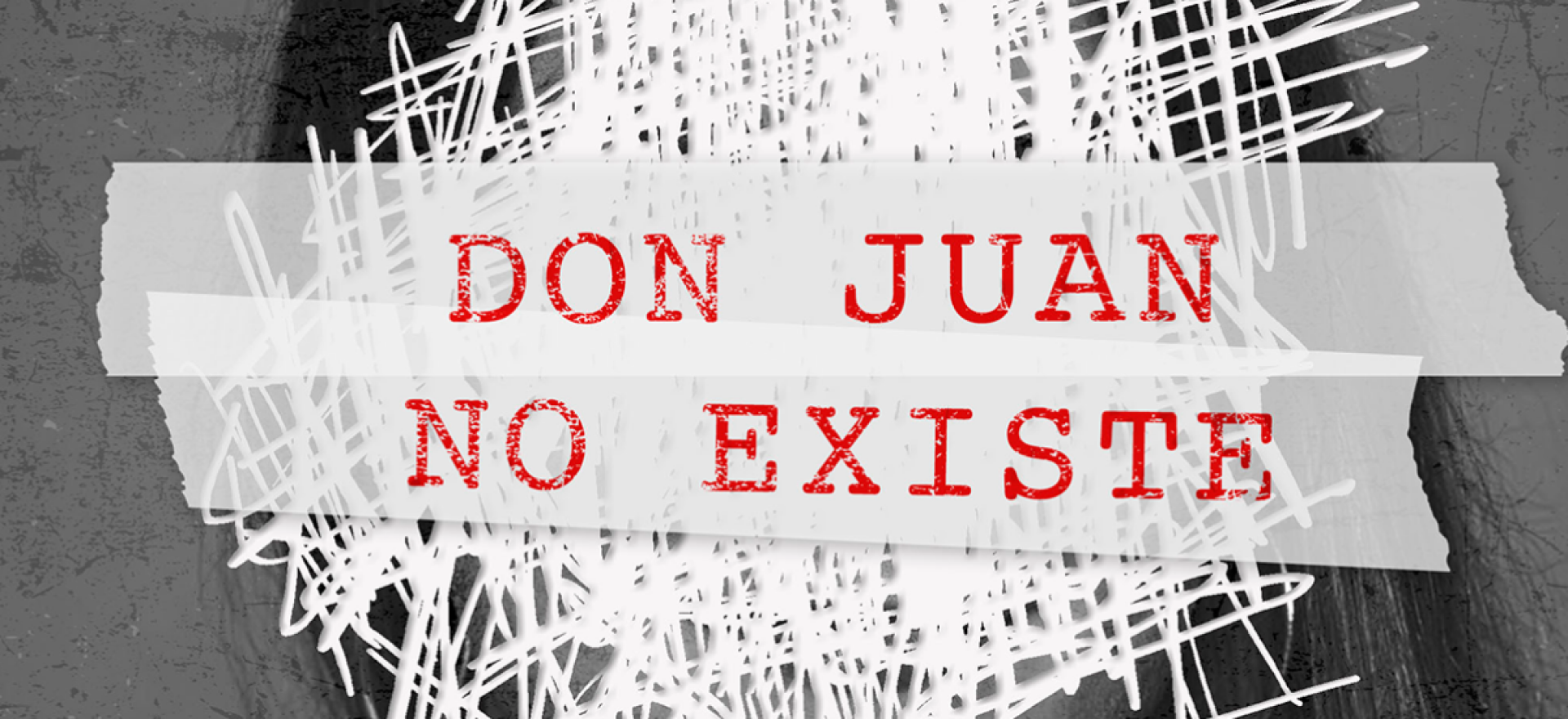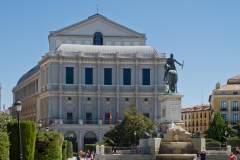Don Juan No Existe
Mo | Tu | We | Th | Fr | Sa | Su |
We are at the beginning of the 20th century. A countess attends a performance of Don Giovanni, accompanied by two close friends. She observes the stage, the characters, but fails to connect with the piece. However, a creative impulse arises: to write her own Don Juan. We accompany Carmen Díaz de Mendoza Aguado, the Countess of San Luis, at her desk.
She begins to write, but it is not only her voice she hears, but also those of her insecurities, society, and even a ghost that stops her. She is alone, even though her friend Miguel is nearby, he does not understand why she must go ahead with this strange project. The premiere arrives, and the piece fails. We are in 2024, and a new creator is trying to complete an opera, trying to figure out what happened with that premiere of Don Juan No Existe by Carmen Díaz de Mendoza Aguado.
She has found newspaper clippings about the premiere, but almost nothing remains about the countess, nor about the text; she has to invent it to be able to speak about her. Again, the antagonist voice appears, but this time it is different, it does not make the author doubt. They converse; he asks: "Why search so much for this countess?" But the author is convinced of her task and will continue searching. This is how this opera by Helena Cánovas Parés, winner of the Carmen Mateu Young Artist Award, was born.
An opera that aims to pay tribute to all those women who have been erased from history simply because they were born women.
Contemporary Opera / Opera in Two Acts
Music by Helena Cánovas
Libretto by Alberto Iglesias
Co-production by the Perelada Festival, Gran Teatre del Liceu, and Teatro de la Maestranza, with the participation of Teatro Real and Teatros del Canal
Premiere in the Community of Madrid
Program and cast
Artistic Team
Musical Direction: Jhoanna Sierralta
Stage Direction: Bárbara Lluch
Scenography: Blanca Anyón
Costume Design: Clara Peluffo
Lighting: Urs Schönebaum
Cast
Carmen (Countess of San Luis), Helena: Soprano
Agustín, Don Juan: Baritone
Miguel: Pablo García-López
Soloists of the Teatro Real's Resident Orchestra
Teatro Real
The Teatro Real is Spain's leading opera house. It is considered to be the top institution in the country in the music and performing arts field.
The Teatro Real Foundation is chaired by the King and Queen of Spain. It relies on two public administrations that took part in its creation: the Ministry of Education, Culture and Sports, and the Comunidad de Madrid (Regional Government of Madrid). The Foundation is governed by a Board of 31 trustees. The Board of Trustees elects the President of Board and the Executive Commission as proposed by the Ministry of Education, Culture and Sport. The Foundation is a public entity and there is an important role played by civil society in its governance and sponsorship.
The objective of the Teatro Real is to create a venue for the most talented singers, conductors ands stage directors from around the world. Its artistic mission is expressed in programming which seeks excellence by combining classical and contemporary lyrical repertory to appeal to audiences of all ages and interests. Introducing young people and children to opera is of particular concern. All this, along with the Principal Chorus and Orchestra of the Teatro Real, the most up to date technological expertise and the large number of in house productions on stages around the world has firmly positioned the Teatro Real in Spain and abroad.

 EN
EN DE
DE IT
IT FR
FR ES
ES RU
RU JP
JP RO
RO
 Seating plan
Seating plan 